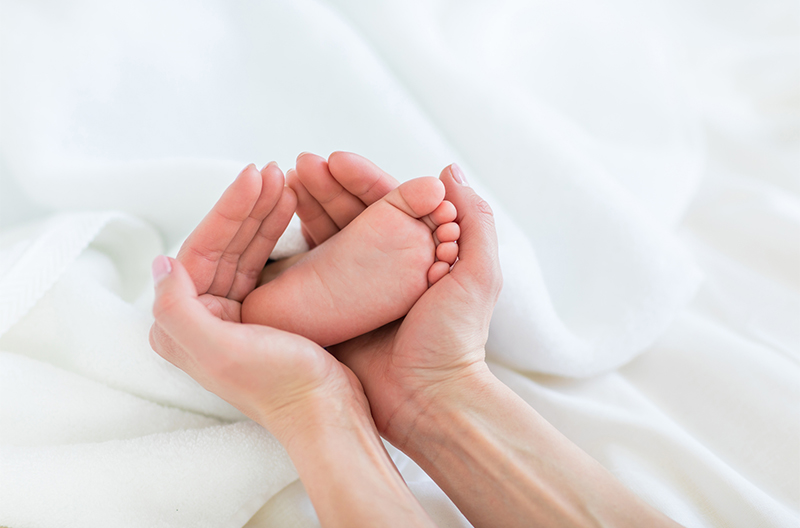Is your biological clock ticking? As women get older, the chance of them having a baby becomes less and less likely. Of course, for some of us, that’s no big deal. You might have already decided that you never want children. On the other hand, if you’re hoping to start a family at some point but don’t feel ready yet, it’s quite the conundrum.
Egg freezing could be the answer. This treatment is becoming vastly popular with women who want to keep their options open as they age. If you’ve heard of the process before, you’re certain to have a few questions about it. Here’s everything you need to know.
What is Egg Freezing?
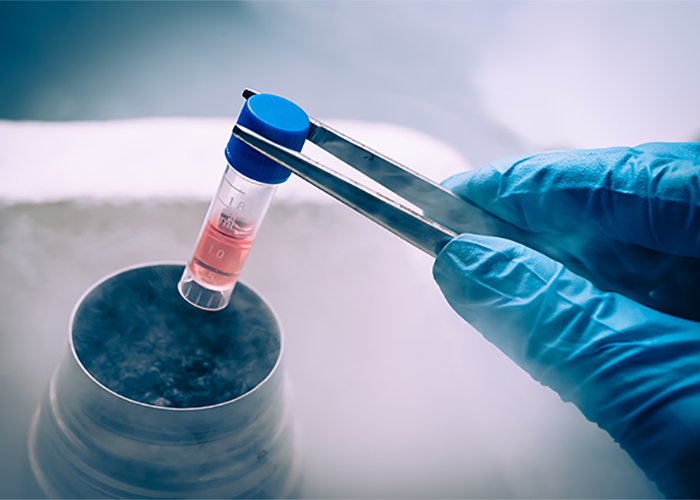
First things first, let’s talk about the most important question: What is egg freezing? Also known as oocyte cryopreservation, this procedure is one that increases the chances for women to get pregnant as they age. As the name suggests, the treatment involves removing eggs from a fertile woman, storing them for a matter of years, and then thawing them for use.
Once you are ready to use your eggs, they will be thawed out and combined with sperm. If this part of the process is a success, the embryo will be implanted into your uterus through a treatment known as in-vitro fertilization. You may then be able to have a baby despite the fact that your body has stopped producing new eggs.
How Do I Know If Egg Freezing is Right For Me?
If you don’t want children right now but think that you might in the future, egg freezing could be the way to go. There are a few major reasons that women choose to look into this treatment. Let’s take a moment to look at whether egg freezing is right for you along with the reasons you may want to try it.
Extend your fertility
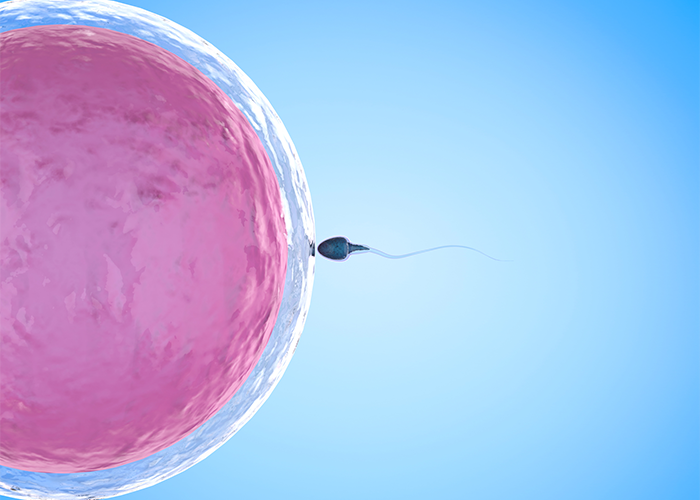
It’s a fact of life — you won’t always be fertile. As women age and near menopause, their fertility starts to decline. While there are things that you can do to increase your fertility, you can’t stop time and when your eggs are gone, they are gone. So, if you’re not yet ready to have a child for a multitude of possible reasons, what can you do?
It should come as no surprise that the main reason that women freeze their eggs is to extend their fertility. When you undergo the procedure, you can then keep your eggs in storage for a matter of years. When you decide that you are ready to become a mother, you then have the opportunity to thaw the eggs and use them to conceive a child.
Combat medical issues
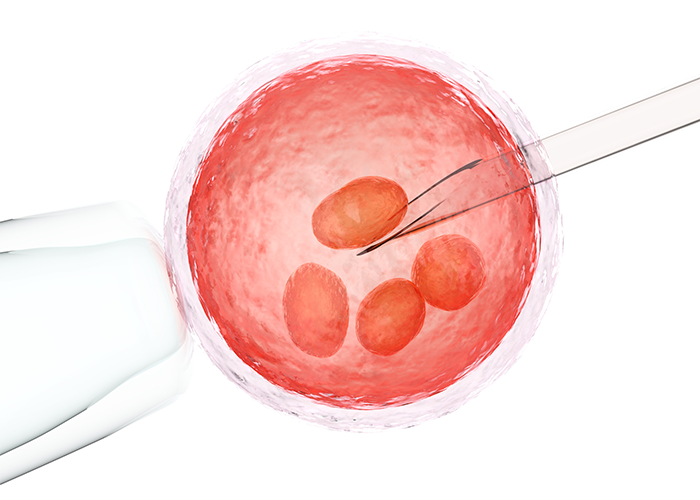
Sadly, some women have medical issues that can mean they are less fertile. Conditions including the autoimmune disease, lupus, can lead to complications during pregnancy. For that reason, egg freezing may be used to extend a woman’s fertility.[1]
If you have been diagnosed with a medical problem that will affect your fertility, you should speak to your doctor about the options that are available to you. Should you want to have children in the future, you may find that the professional advises that you freeze your eggs.
Avoid “panic parenting”
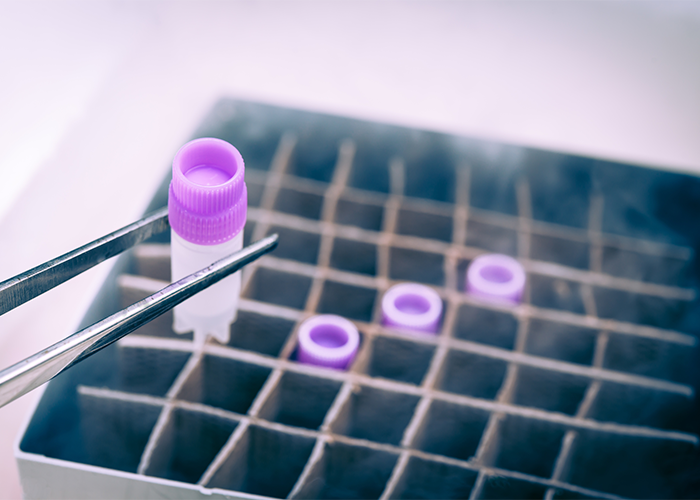
Are you worried about “panic parenting”? One study from the Taylor & Francis Group found that many single women choose to freeze their eggs to avoid this issue.[2]
They define “panic parenting” as entering into unwise relationships in order to have a genetic child. In fact, the research also found that a lack of a partner was the main reason that women chose to start the egg freezing process.
It’s a logical decision. When you reach your mid-to-late thirties, you may feel that there is a biological time limit imposed on when you can naturally conceive a baby. For that reason, some women may find that they rush into a stable relationship too quickly. Freezing your eggs means that time is no longer such a major factor in when you can have kids.
Take some time to think this decision over. Egg freezing can be expensive and evasive, which means that it’s not a decision you should take lightly. Research from the University of California found that most women who freeze their eggs feel “empowered” after undergoing the elective process.[3] However, the same study found that one in six women felt “regret” after undergoing the process.[4] Weigh up the pros and cons first!
“This technology is tremendous if it’s the only way of having a biological child and having a family,” Heather Huddleston, MD, associate professor of obstetrics, gynecology and reproductive sciences at UCSF stated in the report. “But it’s important that we progress thoughtfully, given all the implications this technology may have for women.”[5]
How Does the Egg Freezing Process Work?
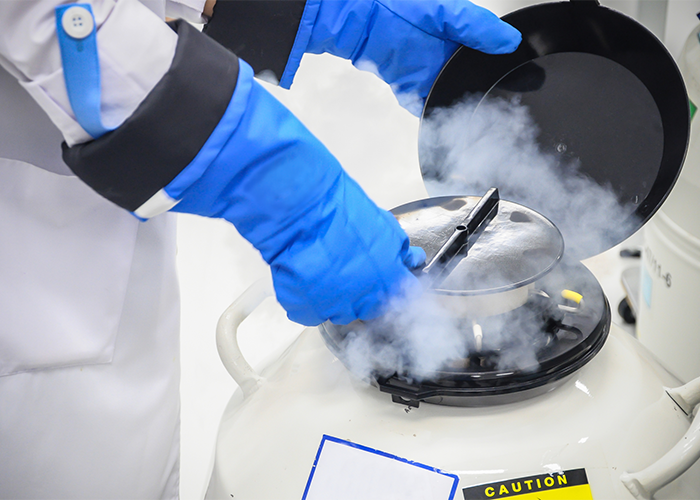
Wondering how the egg freezing process works? When you have decided to go ahead with this procedure, there are a number of steps that the medical expert will have to follow. Learning about these in advance could help demystify some of the processes and allow you to gain a deeper understanding of what will happen. Here’s what you should know.
1. Pre-treatment tests
Before you undergo the egg freezing process, you will need to have some pre-treatment tests. The first of these tests is an ovarian reserves investigation. This one will determine how many eggs you have left and the quality of them. Your doctor will also test your hormone levels too. The second test is an infectious disease screening to make sure that you don’t have diseases such as HIV, hepatitis B, or hepatitis C.
2. Ovarian stimulation
When the tests have been concluded, the medical professional will give you some synthetic hormones to encourage your body to produce extra eggs. Usually, your ovaries release one egg per monthly cycle ahead of your period. However, this treatment should help your body to produce more eggs, which can then be retrieved by the doctor.
The ovarian stimulation process involves taking hormone medication on a daily basis. The chances are that you will be administering the medication yourself and it is likely to be a combination of needles, patches, and oral treatments. Since each woman’s hormone levels are different, your doctor will need to tailor your dosage and keep track of how your body reacts to the medication.
That’s why, throughout this process, you will need to be monitored regularly by your doctor. You might find that you have to have blood tests and vaginal ultrasounds. When your body has produced enough eggs and they are primed to be retrieved, your doctor will suggest that you move onto the next step in your treatment.

3. Egg retrieval
Most of the time, you will be sedated when the egg retrieval process happens. You should talk to your doctor about this ahead of the treatment. There are different approaches, however, the likelihood is that your doctor will insert an ultrasound probe into your vagina to see whether the eggs are ready.[6] They will then run a medical needle into your vagina and inside one of your follicles. The needle will have a suction device on it, which means that the eggs can be sucked out of the follicle easily.
4. Egg freezing
Of course, once the eggs have been retrieved, they will be frozen. Each egg is medically cooled down to temperatures below zero. One of the most popular ways in which doctors freeze eggs is a process called vitrification, or “flash freezing”.[7] After that has happened, your eggs are then stored for a matter of years by the clinic or institute. You will be able to access them whenever you decide that you would like to start trying for a baby.
What Are the Success Rates of Having a Baby Via This Method?

Once the eggs have been frozen and you would like to use them again, they will need to thaw out. Around 75% of women’s eggs — who freeze them before the age of 38 — will thaw out fully and, therefore, be eligible for use, according to the results of a study undertaken by USC Fertility.[8] However, that is merely the first step in the process.
Of the eggs that have thawed, there is a further 75% fertilization rate, according to the same study.[9] Put simply, that means that after freezing 10 eggs, around seven or eight of them are likely to be thawed for use. Then only around five or six of those eggs are likely to get fertilized in the process and turn into embryos.
The overall success rate of oocyte cryopreservation can differ from woman to woman. However, USC Fertility reports that 65% of their patients deliver babies after undergoing the treatment.[10] When you’re considering going ahead with the egg freezing process, it’s worth fully discussing the options with a medical professional. They will be able to give you a clearer idea of whether the procedure will be a success based on your age and health.
Research from New York Medical College suggests that the success rates of having a baby via egg freezing decline as a woman ages and drop dramatically after the age of 36.[11] On the other hand, the same report found that women could have a baby through egg freezing processes as late as the age of 44.[12] Interesting stuff!
What Are the Side Effects & Risks of Freezing Your Eggs?
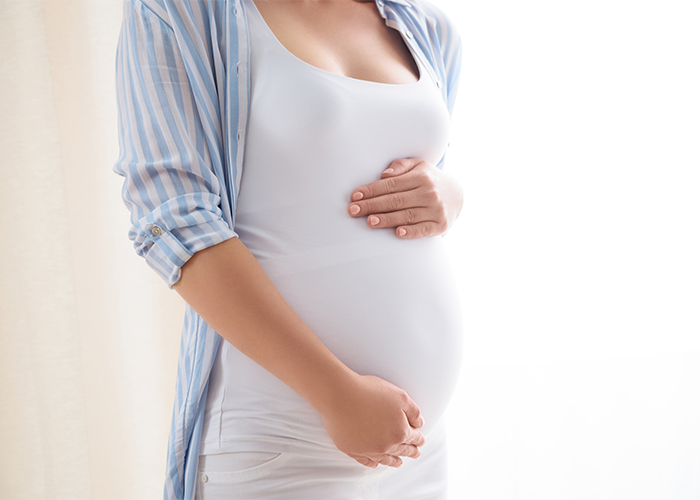
When you’re making this decision, you need to consider what the possible egg freezing side effects and risks are. Your doctor will be able to advise you on what side effects you will experience after the procedure is over. However, you should also be aware of a couple of the major risk factors associated with choosing to freeze your eggs.
1. Ovarian Hyperstimulation Syndrome
Since your ovaries are stimulated as part of the egg freezing process, there’s is a risk of Ovarian Hyperstimulation Syndrome.[13] Only 0.1% to 2% of women who have their eggs frozen will come up against this issue. Symptoms of the problem include breast sensitivity, sickness, headaches, abdominal pain, and irritability.[14] In rare cases, this syndrome can result in death.[15] If you experience any of the above symptoms after the egg freezing process, be sure to contact your doctor as soon as possible.
2. Higher risk during pregnancy
One of the major benefits of egg freezing is the fact that you can have a baby in later life. However, there’s another aspect to this that you should never overlook. The older you are when you conceive a child, the more risks you may face. One report from Deutsches Aerzteblatt International suggests that women who get pregnant after the age of 40 are more likely to get preeclampsia or gestational diabetes when carrying the child.[16]
Fact: 0.1 to 2% of women who freeze their eggs will have Ovarian Hyperstimulation Syndrome.[17]
A Breakdown of Egg Freezing Costs
Let’s talk about money! If you’re considering going ahead with egg freezing, you might be wondering how much the procedure costs. Unlike other, simpler medical processes, there is not one flat rate when it comes to egg freezing costs. There are many different fees that you have to consider along the way. With that in mind, let’s take a look at a quick breakdown of the costs that you will have to cover when it comes down to it.
Treatment costs
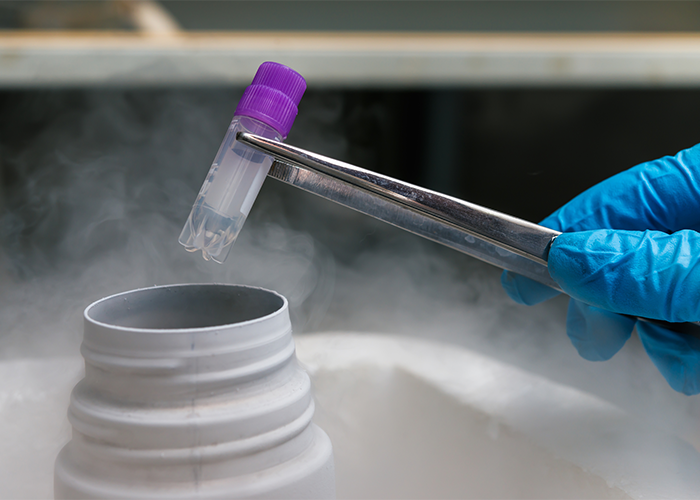
First of all, when it comes to your egg freezing costs, you need to consider the overall treatment fees. These can cost an average of $11,000, according to FertilityIQ.[18]
The costs include everything from the anesthesia and egg retrieval to the monitoring costs as well. Needless to say, these fees may vary largely based on where you decide to have your treatment and what quotes you originally get.
Some of the egg freezing treatment costs that many women tend to overlook is the fees for ovarian stimulation medication. These may be steeper than you first expect them to be. The average cost of medication tends to be $5000, according to FertilityIQ.[19]
When you’re planning ahead and budgeting for your egg freezing, you should factor this into your accounts. The amount of medication — and, indeed, the cost of it — will vary depending on your health and condition. Again, you should have an in-depth chat with your doctor about this issue ahead of time.
Storage costs
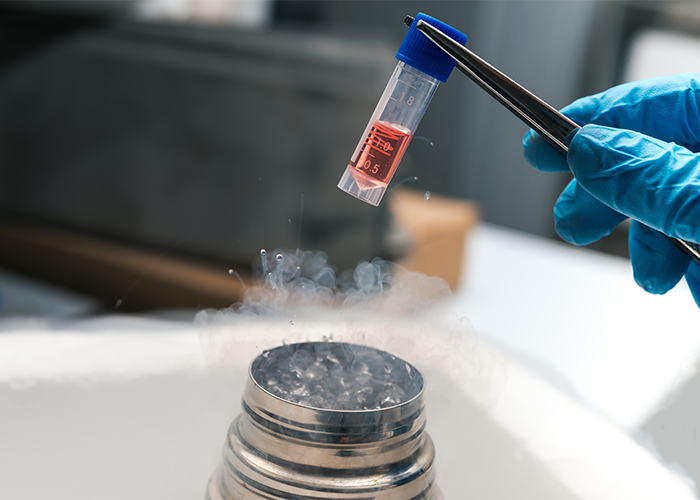
Of course, once the eggs have been retrieved, they will need to be stored. In most cases, you should find that the first year of storage is free.
However, after that, you will have to pay an annual fee for the storage and maintenance of the eggs themselves. Each year of storage will cost around $500 but could be more.[20] You should estimate that your eggs will be stored for a five-year period, which means that the cost will come to around $2000.
Average overall cost
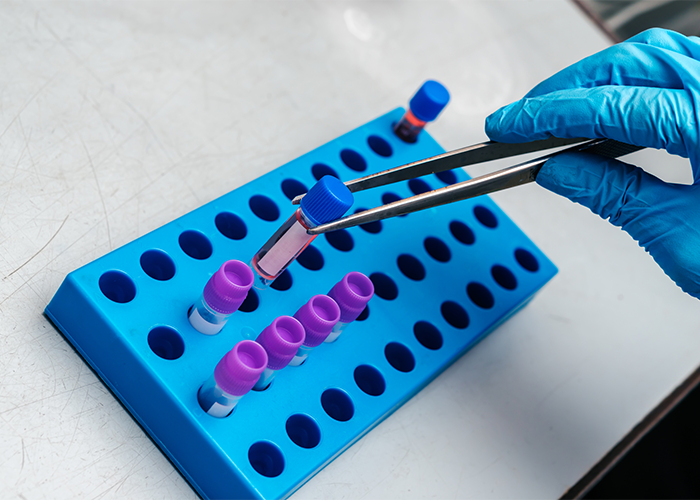
So, how much do these fees add up to? The average overall cost for egg freezing is around $15,991, according to FertilityIQ.[21] You should keep in mind that your region plays a vital role in your egg freezing costs as well.
The report suggests that the average cost of egg freezing in New York City is around $17,773, while the average cost in Boston is $13,800.[22] It could be a wise decision to shop around and see what the fees look like in different areas. “Medical tourism” (i.e. traveling to get a better value treatment) is one of the ways in which you can ultimately end up saving yourself some money.
Does insurance cover freezing eggs?
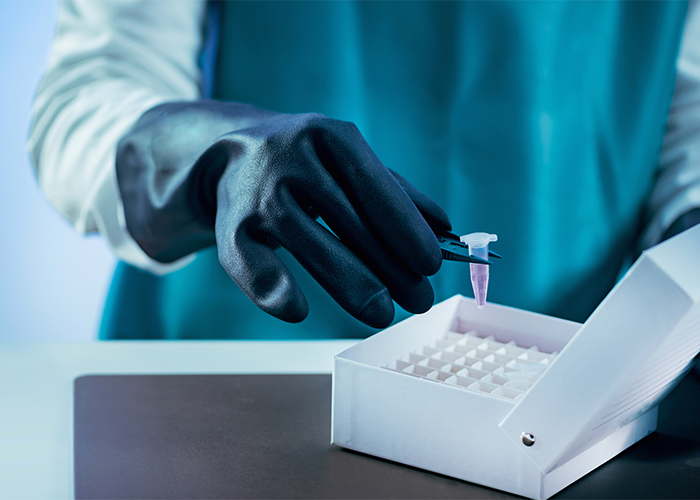
Now that you’re well-versed in how much egg freezing costs, you may be wondering if your insurance will cover it. There’s a simple answer to this question — you will have to check your policy.
In some circumstances, you may find that your health package covers fertility treatments, although that is not always the case. If you are unsure of the terms of your insurance, reach out to your provider and speak directly to them. You might well find that a small portion of the egg freezing costs is covered rather than the total amount.
How Long Can the Eggs Be Stored?
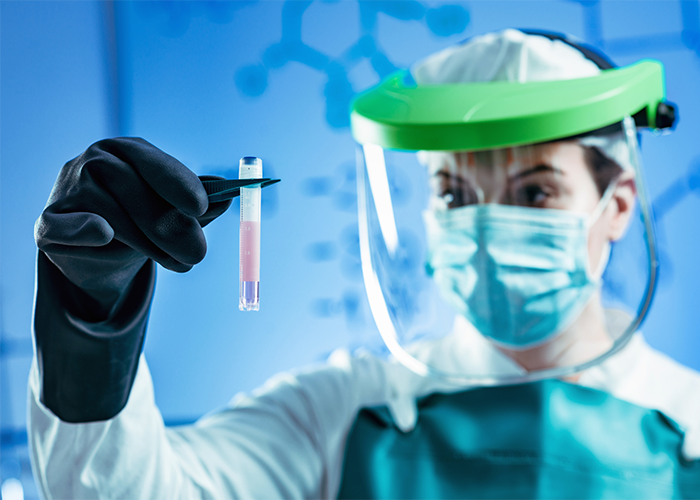
In the USA, your eggs can be stored indefinitely, according to USC Fertility.[23] That means that you can keep storing them for as long as you need to do so.
Of course, it should go without saying that the longer your eggs are stored, the lower your chances of success will be. However, USC Fertility suggests that you can freeze eggs for around 14 years and still have a baby when you thaw them.[24] The best course of action is to speak to a medical professional about this issue. They will be able to give you all the advice and details you need to make a well-informed decision.
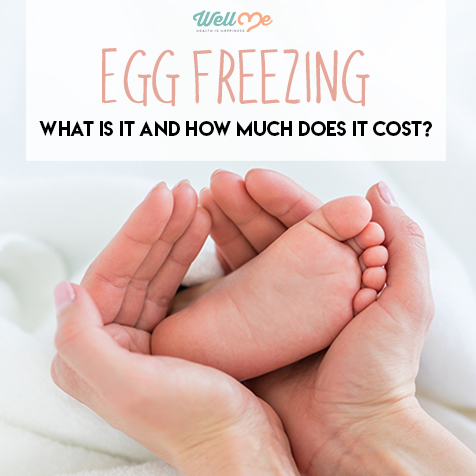
Conclusion
Egg freezing is not for everyone but it could help you to extend your fertility. Ahead of making this decision, there are loads of pros and cons that you will need to weigh up. Only you can decide whether you would like to go ahead with the egg freezing process. If you’re having trouble choosing what to do, it could help to reach out to your doctor and have an informal chat with them. While we have provided a brief overview here, an expert will be able to give you all the information you need along with advice.

Share this Image On Your Site
References
- [1] https://www.sciencedaily.com/releases/2015/06/150611082208.htm
- [2] https://www.tandfonline.com/doi/full/10.1080/14647273.2018.1522456
- [3] UCSF. https://www.ucsf.edu/news/2018/05/410406/women-sometimes-feel-regret-after-electing-freeze-their-eggs
- [4] https://www.ucsf.edu/news/2018/05/410406/women-sometimes-feel-regret-after-electing-freeze-their-eggs
- [5] https://www.ucsf.edu/news/2018/05/410406/women-sometimes-feel-regret-after-electing-freeze-their-eggs
- [6] NCBI. https://www.ncbi.nlm.nih.gov/pmc/articles/PMC4467930
- [7] https://www.ncbi.nlm.nih.gov/pmc/articles/PMC4467930
- [8] https://uscfertility.org/egg-freezing-faqs
- [9] USC Fertility. https://uscfertility.org/egg-freezing-faqs
- [10] https://uscfertility.org/egg-freezing-faqs
- [11] https://www.fertstert.org/article/S0015-0282(13)00519-0/fulltext
- [12] ASRM. https://www.fertstert.org/article/S0015-0282(13)00519-0/fulltext
- [13] https://www.ncbi.nlm.nih.gov/pmc/articles/PMC4467930/
- [14] https://www.ncbi.nlm.nih.gov/pmc/articles/PMC4467930
- [15] https://www.ncbi.nlm.nih.gov/pmc/articles/PMC4467930
- [16] Aerzteblatt. http://dx.doi.org/10.3238/arztebl.2015.0027
- [17] http://dx.doi.org/10.3238/arztebl.2015.0027
- [18] https://www.fertilityiq.com/egg-freezing/the-costs-of-egg-freezing#breaking-down-the-likely-costs
- [19] Fertility IQ. https://www.fertilityiq.com/egg-freezing/the-costs-of-egg-freezing#breaking-down-the-likely-costs
- [20] https://www.fertilityiq.com/egg-freezing/the-costs-of-egg-freezing#breaking-down-the-likely-costs
- [21] https://www.fertilityiq.com/egg-freezing/the-costs-of-egg-freezing#breaking-down-the-likely-costs
- [22] Fertility IQ. https://www.fertilityiq.com/egg-freezing/the-costs-of-egg-freezing#breaking-down-the-likely-costs
- [23] https://uscfertility.org/egg-freezing/long-can-frozen-eggs-stored
- [24] https://uscfertility.org/egg-freezing/long-can-frozen-eggs-stored

